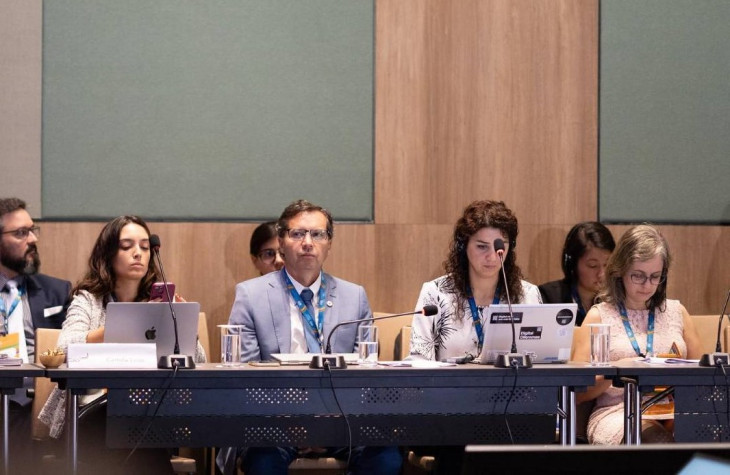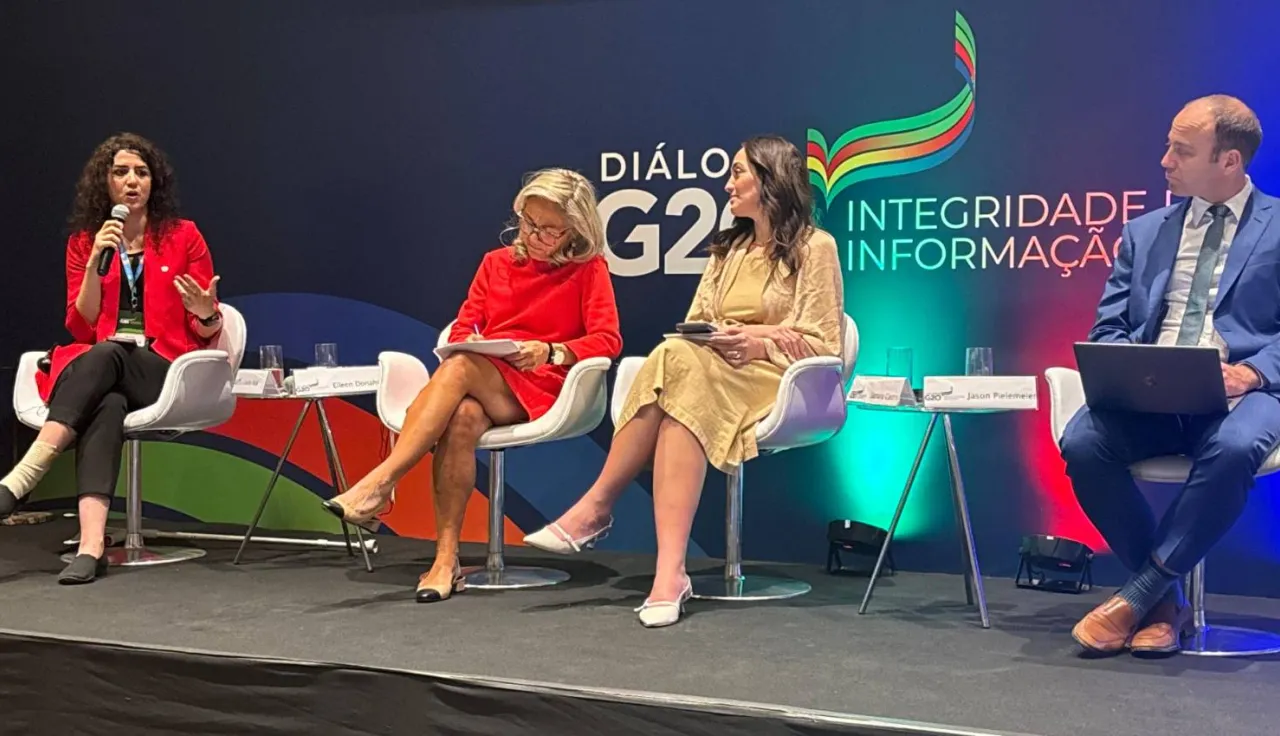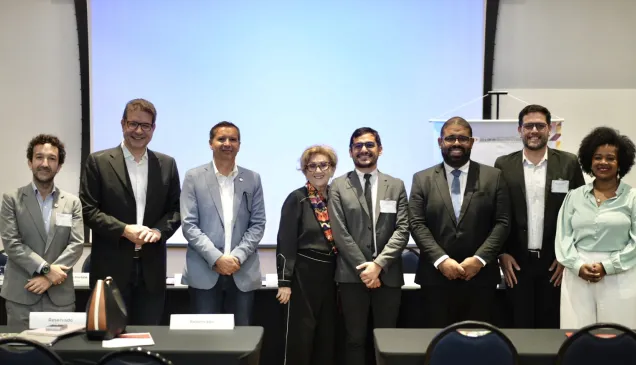On 30 April, Rizk took part in workshops with G20 engagement groups and in closed meetings with international organizations, think tanks and civil society players. Discussions focused on topics such as platform regulation, artificial intelligence and building institutions' resilience to hate speech and disinformation. On 1 May, she took part in a public panel discussion on the theme "building resilience: protecting elections and public institutions from the political instability of online extremism". The other panellists were Executive Director of the Global Network Initiative, Jason Pielemeier; Special Envoy and Coordinator for Digital Freedom of the United States Department of State, Eileen Donahoe; Tech Ambassador of Denmark, Anne Marie Engtoft Meldgaard; and Brazil's Prosecutor General of the Union, Marcelo Eugenio Feitosa Almeida.
Rizk spoke about the ICRC's work on the digital risks that civilian populations face during armed conflicts, focusing on the impact of harmful information, including disinformation, and hate speech.
"At the ICRC, we see this issue as an information-related aspect of conflict," said Rizk, describing how information can fuel polarization and hatred and be harmful to civilians, their safety and their dignity. "Misinformation, disinformation and hateful speech know no borders. They are spread through online platforms, which has amplified their scale, speed and reach, turning harmful information into a catalyst and symptom of mistrust, hatred, violence and harm – both online and offline," said Rizk. "The effects on societies and individuals are a major concern from a humanitarian standpoint. The spread of harmful information makes it harder to protect civilians, particularly those already made vulnerable by violence and armed conflict, putting their dignity, safety and physical and mental well-being at risk. Understanding the impact this has on people's lives is critical, and so is engaging with them to prevent such harmful effects and develop other responses that will strengthen their agency and resilience."

Rizk, together with the head of operations at the ICRC Regional Delegation, Daniel Muñoz-Rojas, also participated in workshops with G20 engagement groups.
A session on the theme "information integrity: combating disinformation, hate speech and threats to democracy", brought together around 550 experts, practitioners and state representatives from more than 50 countries, highlighting the need for a global discussion on the subject. The seminar took place alongside NetMundial +10, a global meeting on the future of internet governance.
The event was an initiative of the G20 Digital Economy Working Group, and guests included Paulo Pimenta, Minister of the Secretariat for Social Communication of the Presidency of the Republic of Brazil, Melissa Fleming, UN Under-Secretary-General for Global Communications, Tawfik Jelassi, Assistant Director-General for Communication and Information at UNESCO, and Elsa Pilichowski, Director of Public Governance at the OECD.
Between 2021 and 2023, the ICRC brought together a global advisory board made up of high-level legal, military, political, technological and security experts to advise the organization on digital threats and develop concrete recommendations on how to protect civilians against them. The board released a comprehensive report on the issue at the end of those two years.
"The ICRC continues to hold discussions with other humanitarian organizations, practitioners, journalists, civil society players and social media companies on approaches that are specific to conflict settings," said Rizk. Underscoring the importance of ensuring there is space for principled humanitarian action, she added, "It is important that humanitarian organizations such as the ICRC are not instrumentalized and that they can continue to carry out their operations during conflicts. Loss of trust in humanitarian organizations may prevent people from gaining acces to humanitarian services and may lead to loss of life."
 In his talk at USP, Rizk explained the risks of harmful information in contexts marked by armed conflicts.
In his talk at USP, Rizk explained the risks of harmful information in contexts marked by armed conflicts.
About the G20
The G20 is made up of 19 countries (Argentina, Australia, Brazil, Canada, China, France, Germany, India, Indonesia, Italy, Japan, Korea, Mexico, Russia, Saudi Arabia, South Africa, Turkey, the United Kingdom and the United States of America) and two regional organizations – the African Union and the European Union. The members of the G20 represent approximately two thirds of the world's population.
The G20 presidency rotates annually, and Brazil took up the role for the first time in 2024. Initially, the G20 focused mainly on macroeconomic issues but has since expanded its agenda to include topics such as trade, sustainable development, health, agriculture, energy, the environment, climate change, combating corruption, and digital threats.




